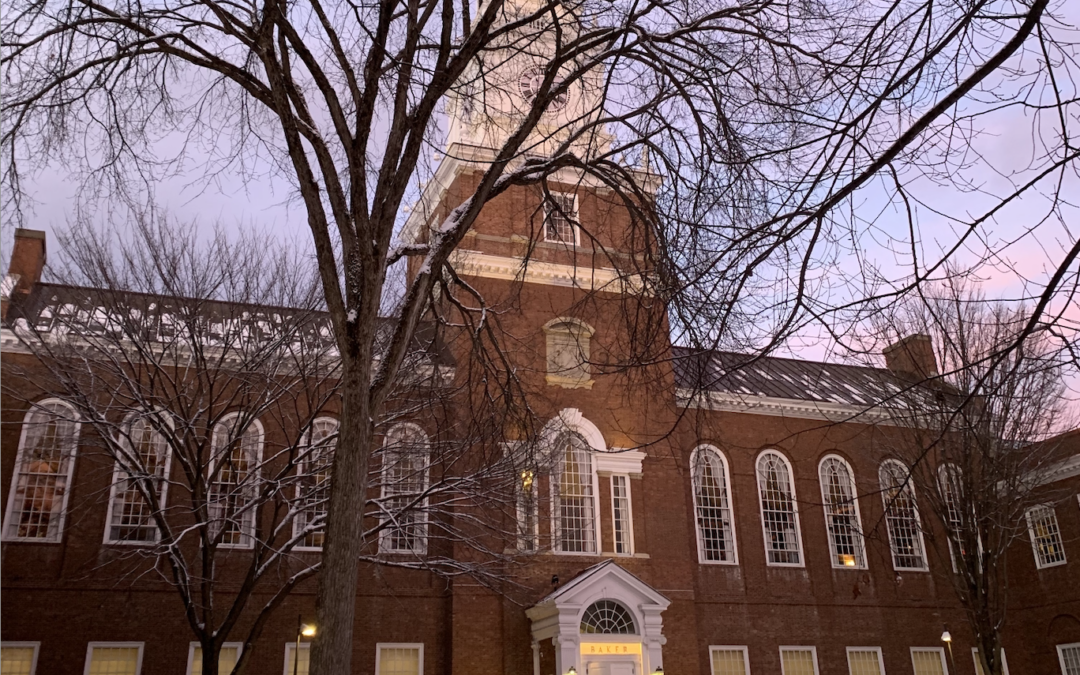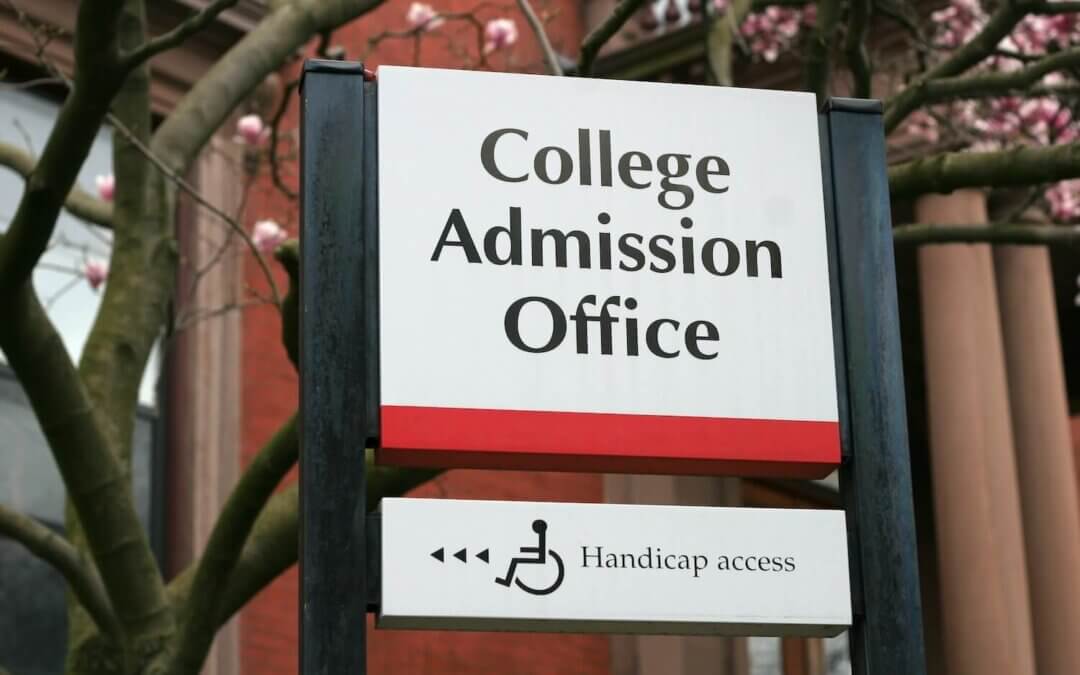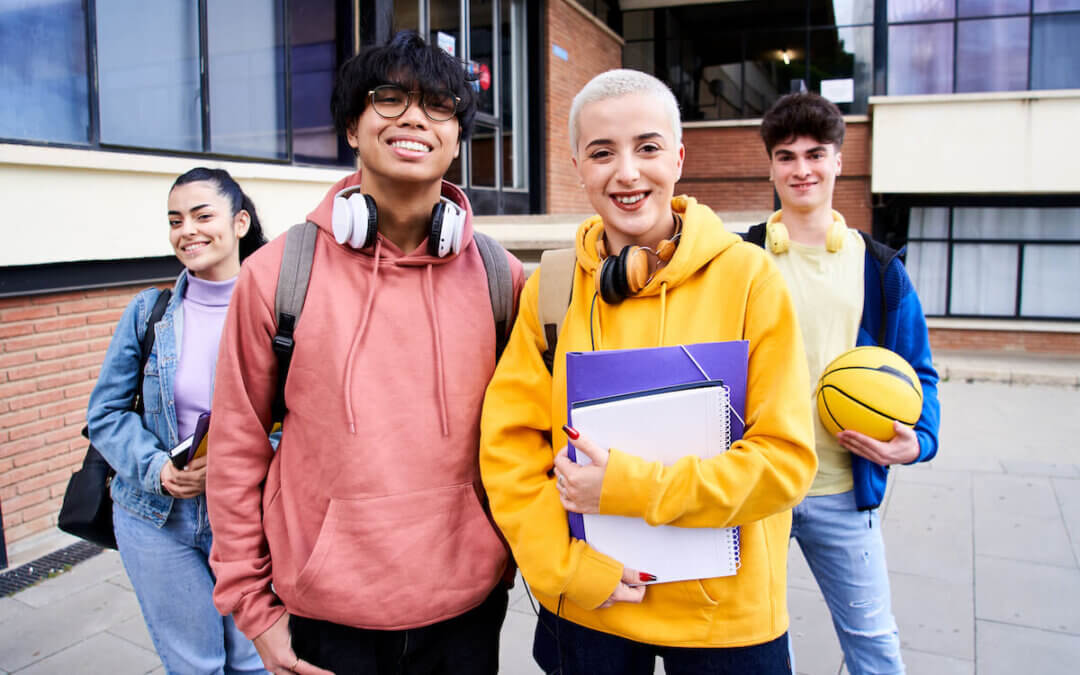For musically gifted students with an excellent academic background, choosing whether to attend a college or a conservatory can seem like an impossible task. Fortunately, with many top schools offering dual-degree programs in music, students have the option to attend both! While these programs vary widely in scope, they all offer both rigorous academic programming, world-class teachers, and access to a professional music network. Whether you’re committed to pursuing academics without giving up music in college or unsure about which one to pursue, you should explore these dual-degree programs.
Bachelor’s/Master’s Programs
Typically offered by Ivy League schools, five-year master’s programs in music allow students to attain both a Bachelor of Arts (or Science, depending on the school) and a master’s degree in music in five years. In most programs, students complete their bachelor’s degree requirements in the first four years while taking studio lessons in music school. Students fulfill the remainder of their bachelor’s degree requirements while starting coursework for their master’s program during their fourth year of college, and complete their master’s requirements by the end of their fifth year.
Harvard Dual-Degree Programs
Harvard University currently offers two dual-degree music programs to its undergraduate students. The first program, offered in partnership with the New England Conservatory (NEC), the oldest independent conservatory in the U.S., places students on a five-year track to attain a Bachelor of Arts from Harvard College and a Master of Music from NEC. In addition to instrumental performance, Harvard/NEC students may also major in composition, voice, jazz studies, and contemporary improvisation for their master’s degree at NEC.
The second dual-degree program between Harvard College and Berklee School of Music, first introduced in 2016, differs greatly from similar programs offered by other schools in that Berklee offers master’s programs in film scoring, music production, music business, music therapy, and other subjects untethered to classical or jazz performance. This makes the program particularly suited to students who are not looking for classical training or who wish to pursue a graduate degree in popular music or non-performance fields. In a typical year, only a single-digit number of students are admitted to either program, making admissions extremely competitive.
Columbia-Juilliard Joint Program
The partnership between Columbia University and the Juilliard School is unique amongst the crowd of combined music programs in that the two schools offer two separate programs — the Exchange program, which is a cross-registration program that allows students to take lessons and participate in small ensembles at Juilliard for Columbia credit; and the Joint program, which is the five-year track similar to the dual-degree programs offered at other schools. Both programs are open to classical and jazz instrumentalists and vocalists. Due to the additional courses required for vocalists at Juilliard, students pursuing vocal arts may require a sixth year to complete the program.
It’s important to note that students cannot apply and be placed into the five-year track during the college application process. Anyone aiming for the five-year Joint program must be enrolled in the Exchange by their sophomore year and successfully re-audition into Juilliard’s master’s program in their junior year to be officially placed into the Joint program. Despite the complex and competitive nature of the admissions process, the opportunity to study at two of the world’s most prestigious institutions while being immersed in NYC’s vibrant arts culture remains the highlight of this competitive program.
Yale B.A./M.M. Program
The only Ivy League institution to offer a five-year master’s program for music on one campus, Yale University offers greater integration and flexibility in its dual-degree program as compared to those offered by other schools, as well as a tuition-free music school. Students may choose to either apply and audition for the five-year program during the college application process or during their junior year at Yale College. Because of the close relationship between Yale College and the Yale School of Music, students can take required music courses throughout their four years at Yale College, instead of starting during their junior year.
Despite the program’s name, Yale’s five-year program is open to students interested in pursuing a Bachelor of Science, a standout amongst other programs of its kind. However, the program is open to classical instrumentalists only (no vocalists, conductors, or composers). In 2005, Yale School of Music received a $100M donation, enabling all students at the school to receive full scholarships. The promise of a free music graduate program in addition to the prestige of Yale makes admission to this program incredibly competitive.
Note: In each of these bachelor’s/master’s programs, students must separately gain admissions to each school, then gain admissions to the dual-degree program. While unlikely, it is possible to gain admissions to both schools involved in a program yet not be accepted to the program itself.
Dual Bachelors’ Programs
Dual bachelors’ programs allow students to attain a Bachelor of Music alongside a Bachelor of Arts or Science. Typically offered by two different schools in the same university, these programs are offered in a variety of ways and are perfect for students who want to receive a degree in music, access music resources, and pursue a rigorous college experience without committing to a graduate program or attending two separate institutions.
Johns Hopkins University
Johns Hopkins University (JHU) is one of the most prestigious research universities in the U.S.. JHU’s double degree program allows students to attain a B.A. or B.S. from Johns Hopkins (Homewood campus) and a B.M. from JHU’s Peabody Institute, the oldest conservatory in the U.S.. Due to the separate degree requirements and a limit on the maximum number of credits double degree program students can take each semester, this program is designed to be completed in five years. For students interested in applying Early Decision (ED) to Johns Hopkins, the Peabody Institute offers ED auditions for potential double degree students, with students receiving admissions decisions from both schools by December 15th of their application year.
University of Rochester
Located in upstate New York, the University of Rochester is simultaneously one of the top and one of the smallest private research universities in the U.S.. University of Rochester makes it to the top of our list primarily for its music school, the Eastman School of Music. Eastman consistently ranks among the top music schools in the U.S. and the world, with the rigor and reputation of its music performance programs comparable to those found in independent conservatories such as the Juilliard School and the Curtis Institute. University of Rochester offers both a five-year BA/BM and BS/BM program and is a great fit for students looking to focus on music performance at the undergraduate level.
Dual Bachelor’s Programs with Unique/Flexible Programming:
While many students look for a Bachelor of Arts or Science with their music degree, some students may have more unique sets of interests that are best served by schools which offer maximum flexibility or a program that caters to students’ specific interests. The following schools offer both traditional liberal arts/engineering and music dual-degrees, but also provide other programs for students with special interests.
Northwestern University
Northwestern University, one of the most prestigious universities in the country, also offers dual-degree music programs at the undergraduate level. Students may choose from several options offered by the Bienen School of Music, including the standard BA/BM with the Weinberg School of Arts and Sciences and BS/BM program with the McCormick School of Engineering and Applied Sciences, as well as the BA/BM and BS/BM programs in Communication and Music at the School of Communication and the BSJ/BM program in Journalism and Music with the Medill School of Journalism. Musicians with a keen interest in journalism, media, and marketing should definitely explore Northwestern as a potential school.
University of Michigan
The University of Michigan is another standout when it comes to flexible programming, offering multiple recognized dual-degree programs for undergraduate students. These include the standard BA/BM program with the College of Literature, Science and Arts (LSA), as well as the BS/BM program with LSA or College of Engineering. For students looking to study business and music, UMich also offers BBA/BM at the Ross School of Business. The University of Michigan offers one of the best music programs of any public university in the U.S. and should be on the school list of any applicants looking to complete a dual-degree program.
University of Southern California
The University of Southern California is well-known for housing a robust collection of art schools within a research university setting, including the Thornton School of Music. USC’s double major system allows students to apply for double majors in any of USC’s schools. With a program advisor’s approval and a successful audition, students can essentially create their own programs through any combination of majors, potentially earning two degrees, depending on the chosen majors. This flexibility can result in very unique dual-degree programs for students interested in both music and other academic subjects. In addition to instrumental performance, USC offers programs for popular music, music business (including a B.S. in Music Industry), and music production. Students are also sure to benefit from Los Angeles’ vibrant music scene and film industry.
It’s very important to carefully research these programs and stay up-to-date, as each program’s scope and curriculum is subject to change on a year-to-year basis. Though music schools tend to opt for December 1 as their application deadlines, these programs also tend to have unique deadlines — carefully review the application requirements for each school you plan on applying to!
For instrumentalists and vocalists, acceptances to music schools are always based on a competitive audition process. If you anticipate being called into a live audition, be sure to check out our article on how to best prepare for an audition!












